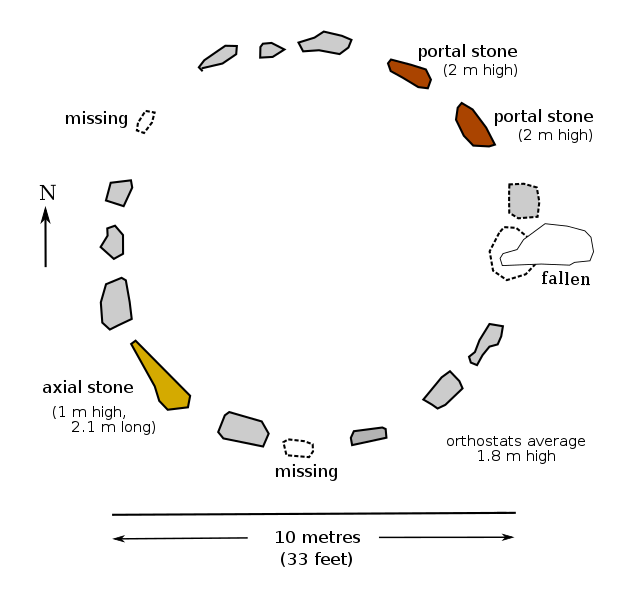The Mountain Sanctuary of Göbekli Tepe. Astrology & Sacred Sites: the astrogeographic position of the by far oldest known temple worldwide
Compare: Scorpio in Astrogeography, Capitals of World Religions in Astrology, Scorpio as the sign of sculpting, The Oracle of Delphi in astrology,. The Stonehenge Monolithic Circle, Avebury Stone Circle, The Hill of Tara, Dolmen and Portal Tombs in astrogeography, Sonnenobservatorium Goseck, Bighorn Medicine Wheel in Capricorn and Aries, The Richat Structure in Scorpio plus Virgo. Nabta Playa sun and star observatory,
The Mountain Sanctuary of Göbekli Tepe
The mountain sanctuary of Göbekli Tepe (engl: hill with the navel) is currently the oldest known temple in the world. It`s construction was started around 11 000 BC by pre-agricultural groups of hunters.
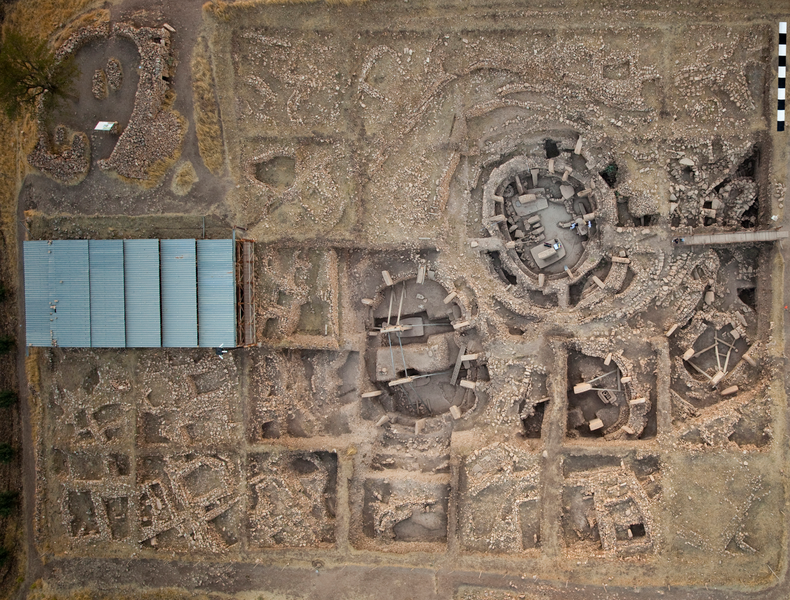
The temple is located on a 15 m tall Tell – an artificial mound formed from the accumulated refuse of people living on the same site for hundreds or thousands of years. A classic tell looks like a low, truncated cone with a flat top and sloping sides, and can be up to 30 metres high. More than 200 pillars in about 20 circles have been found so far. The Göbekli Tepe sanctuary is located on a mountain top a few kilometres north-east of the city of Sanliurfa in the Southeastern Anatolia Region of Turkey.
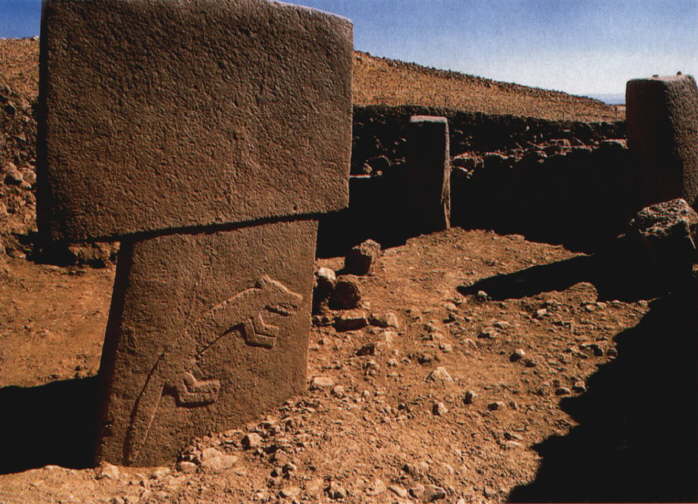
Göbekli Tepe was a gathering site for groups of hunters some travelling thousands of kilometers to occasionally attend gatherings here. Archaeologists found that the vast grass lands of the region provided an extremely rich supply of antelope meat as well as of cereals that allowed the production of an early form of beer.
Construction at the Beginning of the Scorpio Age 9503 BCE – 8018 BCE
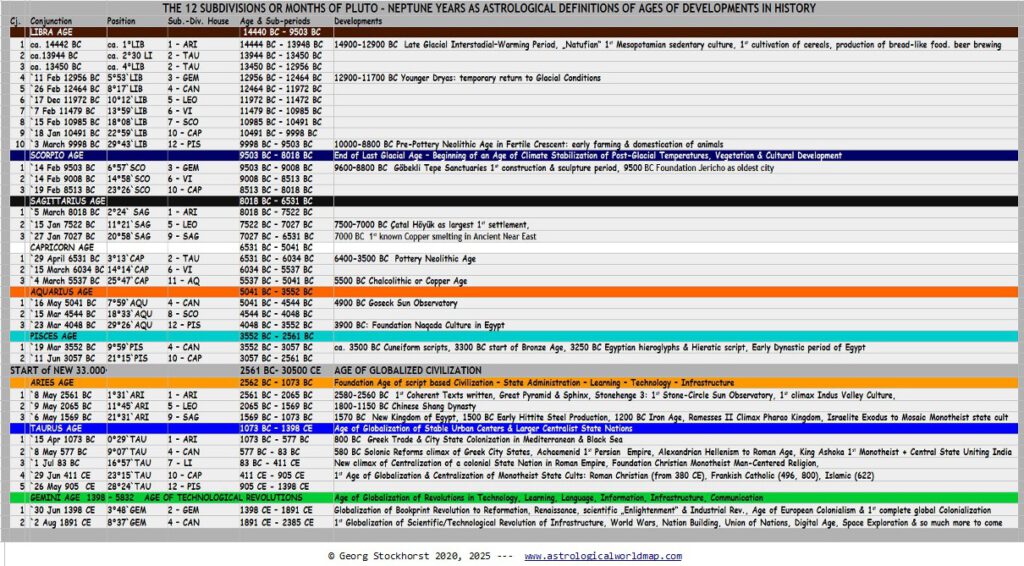
- Construction work at the Göbekli Tepe sanctuary was first started during the Scorpio Age. 9503 BCE – 8018 BCE
- Considering the fact climate shift ended the last Glacial Age between 110,000 to about 9,700 BCE the beginning of the Scorpio Age in 9500 BCE can be explored as the astrological indication for the cstart of the current warm period.
- This coincidence. makes the GÖBEKLI TEPE Sanctuary THE TEMPLE to our current warm climate period.
- The preceding age of AIR SIGN LIBRA between 14442 BCE and 9503 BCE can so be considered as the TRANSITIONAL PERIOD BETWEEN GLACIAL.& WARMING PERIOD.
Astrogeographical Position FL 3 in Scorpio + Capricorn
The carefully carved out reliefs show lions (or tigers, leopards), bulls, boars, foxes, gazelles, snakes, other reptiles, vultures, cranes, ibises and scorpions.
Göbekli Tepe is one in a large number of examples for astrogeographic constellations where Scorpio appears as the sign of the stonemasonry, metalworking and blacksmith trades together with large stone sculptures, particularly as is the case here, when they are worked out from the rock in situ (in place).
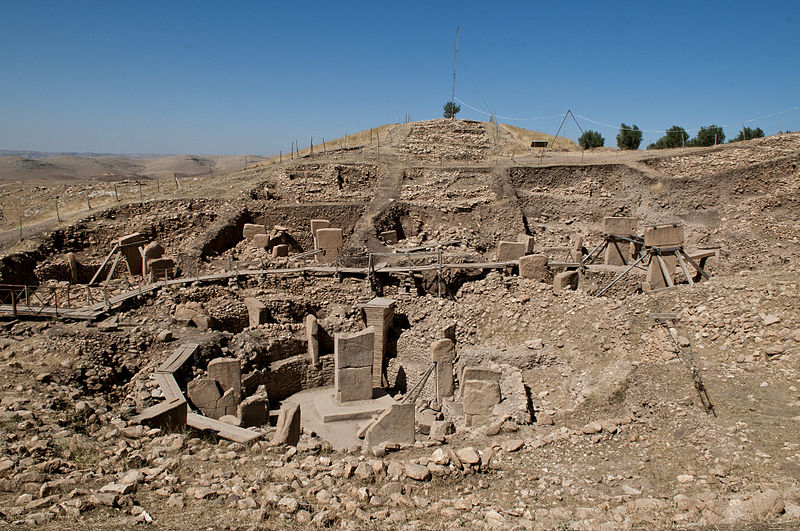
Astrogeographical position for morphogenetic field level 3 which describes the at mospohere and anergetical topics of the whole sanctuary and how the site is embedded in the surrounding area:
One coordinate is located in solid, conservative, strict earth sign Capricorn sign of mountains, rocks, control, skills, government institutions and indicator for the exposed position and for the plan to built a solid monument that could last for eternity. The position in Capricorn is an indication of the function of the sanctuary as a central temple of the ruling “state religion” of a central government dedicated to supporting the long-term stability of society (tribes) along with its ruling class. Important examples for this function of temples in Capricorn are: Karnak Temple, Jebel Barkal, Tian Tan Temple, Pashupatinath Temple, Meenakshi Amman Temple, Washington National Cathedral
The second coordinate lies in highly defensive, fixed water sign Scorpio the sign of sculpting, imaging, visualization, photography. iconography and an indicator for a the particularly huge artwork of the sculptures. Important examples for such monumental particlarly large sculptures carved from the rock in situ located in Scorpio are: Crazy Horse Memorial, The Buddhas of Bamyan, Sri Gomateshvara Statue, Sigiriya.
The combination of Scorpio through its role as the sign of death with Capricorn sign of tradition, history and conservation could indicate a place of sacrifice and/or cemetery dedicated to the representation of tradition and the memory of the founders of a dynasty . The massive character of some of the monoliths with a weight of 20 to 30 in some cases up to 50 tons, is symptomatic of the monumental, sometimes gigantomanic character of the fixed sign qualities of Scorpio. Apart from that Scorpio is also to be seen here as a plausible indicator for the resonance of the topics of a nomadic, tribal culture which is assumed to have been the cultural background of the creators of the magical Göbekli Tepe sanctuary.
Both signs Scorpio as well as Capricorn are the most important astrological indicators for stone masonry and also of particularly hard types of rock. Both indicate particularly hard work, craftsmanship and strictly following the planned image of the depicted object. Highly traditionalistic, conservative, strict, hierarchical Capricorn as the sign of mountains, rocks and government institutions stands for the strategical importance of the site and its dominant position on the top of a mountain as well as its monumental character as a mountain and rock sanctuary that was built to last for eternity.
Astrogeographical Position FL 1 (global resonance) at 17°Taurus & 6°Libra
Astrogeographical position for morphogenetic field level 1 (region) which describes the global resonance of the temple: the astrogeographcial resonance coordinates aof the site are at 17° Taurus and 6°Libra
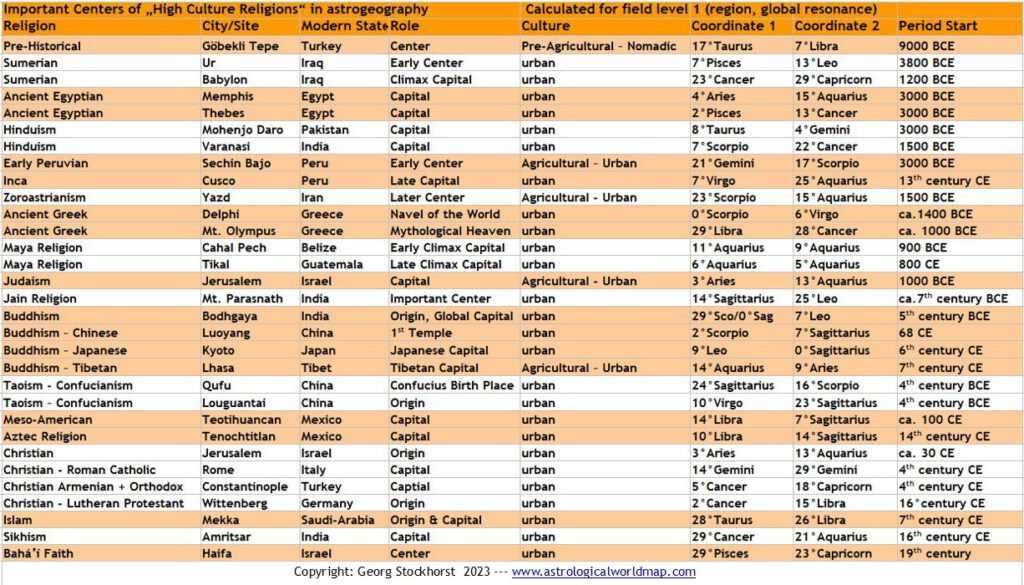
Drombeg Stone Circle in Capricorn with Scorpio
Drombeg Stone Circle also known as “The Druid’s Altar” is a 9 m wide axial so called “Cork–Kerry” type of Bronze Age stone circle of 17 stones orientated south west towards the setting sun during sunset at the winter solstice. It is located near Glandore, County Cork, Ireland and has been carbondated around 800-1200 B.C..
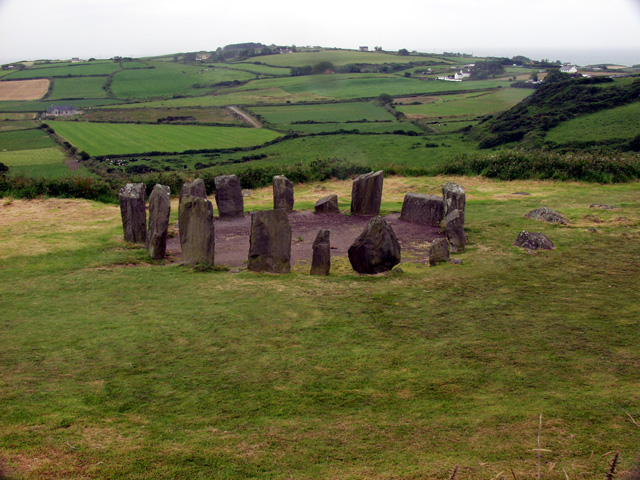
Astrogeographical position for morphogenetic field level 4 which describes the energetical topics and functions of the Drombeg Circle: one coordinate is located the first degrees of solid, conservative earth sign Capricorn and right next to the cardinal divide of the winter solstice pointing at the function of a building dedicated to time measurement, determining of the seasons, a place for tribal gatherings, rules + laws, tribal chiefs, important decisions, stability and government. The 2nd coordinate is located in highly alert, solid, fixed water sign Scorpio sign of sculpting, imaging, visualization, fortresses, physical stability.
